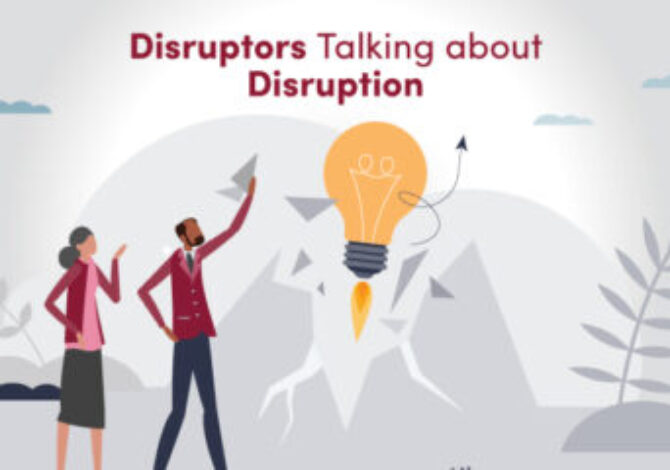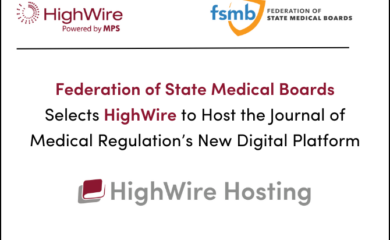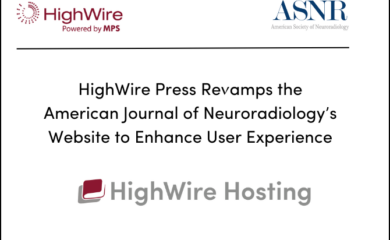Tony Alves attended the Association for Learned and Professional Society Publishers 2023 Annual Conference in Manchester, UK. Among the many interesting topics covered, Alves chose to focus this three-part blog series on three sessions that he felt reflected some of the big concerns facing scholarly publishers today, fairer metrics, technological disruption, and Chinese research priorities. In this second blog post, Alves reports on a panel of known disruptors talking about disruption.
Disruptors Talking about Disruption
Tony Alves, SVP of Product Management, HighWire Press
One of the most compelling sessions at ALPSP was the panel discussion on “Disruption in Scholarly Publishing”. Disruption can be an overused term, but the panelists, each from disruptive organizations, where creative in how they addressed the questions. The panel was led by Godwyns Onwuchekwa, Head of Communities at eLife. Onwuchekwa kicked off the session with the meta-question, “What comes to mind when you hear disruption?”
Charlie Rapple, Co-founder of Kudos responded by crediting the digital transformation as the biggest driver, enabling open access and allowing for a greater distribution of scholarly content. Despite the promises of digital, the PDF is still the standard, and only 30% of articles are free to read at publication. The scholarly publishing industry does not like radical change, which can make sense when you think about the importance of a stable research environment. The world needs to be able to trust and benefit from research. We need to look at what isn’t being done and try to do that. Sustainability will force disruption and we need to be ready for that.
Josh Nicholson, Co-founder and CEO of scite, pointed out that his organization isn’t trying to disrupt publishers, they are trying to disrupt citations, while cooperating with publishers. After years of trying disruptive tactics, Nicholson feels that the scholarly publishing space requires collaboration to change things. Scite has been successful because they work with publishers, helping to solve a problem around reproducibility. He reminded the audience that AI can be good and bad. ChatGPT is impacting world, it’s hard to trust the output of large language models because they need citations. We didn’t have the foresight, but it turns out what we’ve been doing can help make AI generated information more reliable.
Rebecca Kirk, a publisher at PLOS, asked if it’s possible to be disruptive when the researcher world is stuck in the traditional reward system. Echoing the keynote address from Elizabeth Gadd of Loughborough University, Kirk contended that publishers will have trouble changing that reward system unless we can produce different metrics to help change the evaluation process. The industry should be measuring how research is making a difference in the world and should decentralize science.
Philipp Koellinger, Co-founder of DeSci Labs, weighed in on Kirk’s call for a disruption in metrics noting that publishers have a role in curation and validation of science, and because of this role publishers control the metrics that Researchers need for their career success. Publishers need to think about what they are rewarding and what criteria are they using when selecting the studies to publish. Koellinger is motivated by the reproducibility crisis. Replication is important, we need to trust the results of science and we need clear signals for quality.
Rapple agreed with the need to disrupt the evaluation process stating that publishers need to take action on research evaluation. Citations are the current means of metrics, but publishers need to keep in mind that there are many initiatives looking to change that.
A question was posed by an audience member, “With the hollowing out of technical prowess in many publishing organizations, publishers look to outside partners. How do you prioritize which disruptive path you go on?”
Nicholson responded that technology can actually be the easy part, it’s showing the benefits of the new idea that is really important. Start-ups and tech firms get the talent because they are working on an interesting problem. However, those organizations need to understand the traditions of the industry they are in and work within them. The change you are making has to be compelling. There was general agreement with these sentiments among the panel.
Onwuchekwa then asked, “What stops you from engaging in disruption?”
Rapple responded that when things start to change people start to freak out. People turn to what they are already doing and double down on what they already are doing. We need to bring people along with change. You need to continue doing what is making your company successful while being open to experimentation. You need to put aside 20% of your time and resources in to exploring new things.
Another question from the audience challenged Koellinger’s contention that publishers are responsible for setting the agenda, pointing out that editors and editorial boards are responsible for this.
Koellinger editors do have discretion. The journal focus on novelty is a problem, it comes at the expense of the robustness of the knowledge, and there needs to be new tools and new incentives. The editors need to support reproducibility.
Nicholson took up the charge for new tools and incentives noting that scite is helping to change how citations are used because scite shows qualitative information for references, revealing if citations are supportive, non-supportive or even retracted. The changes feel slow but it has to be because we are dealing with important research that effects lives. I all ideas were implemented it would be chaos.
The panel wrapped up discussing how oftentimes innovative projects are the purview of a small, exclusive team and are not visible to the entire organization. How can you get an entire organization to be innovative? It was also noted that disruptive tools and services often get acquired by larger commercial organization, and there is a tendency for disruption to go away because in is not valued by the larger organization. Disruption and innovation is threatening to people who are not directly involved. You need to make the entire organization part of the innovation instead. Don’t’ talk about the innovators as “them”, talk about them as “we”.
By Tony Alves



